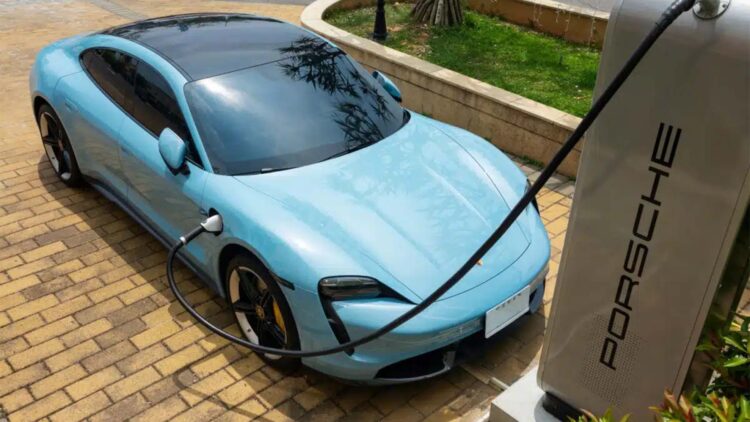Porsche Cars North America is facing a new class action alleging that it misrepresented the charging times for its plug-in hybrids and electric cars at home. The Porsche Mobile Charger Plus (PMC+) and Porsche Mobile Charger Connect (PMCC), according to plaintiffs Paul Herdtner and John Holby, often don’t charge as quickly as Porsche says it should. And a software update that was meant to prevent dangerous overheating ended up reducing charging rates to nearly half of their stated level.
Customers allegedly paid for performance that “the devices cannot safely provide,” according to the lawsuit. The case, Herdtner, et al. v. Porsche Cars North America Inc., was filed in the Atlanta Division of the U.S. District Court for the Northern District of Georgia.
What’s going on with Porsche and who will be affected
Porsche Cars North America sells and leases the PMCC and PMC+ for at-home charging, but “frequently” falls short of the promised charging speeds, according to the complaint. Porsche released a software update to address overheating, but according to the plaintiffs, it “limited the devices’ charging rate to half of what was advertised,” turning a safety patch into a performance deterioration.
“As a result, consumers who purchased or leased the charging devices have paid for functionality that PCNA advertises but that the devices cannot safely provide,” the complaint states.
A nationwide class of customers who bought or leased a Porsche car and paid for a Porsche Mobile Charger Plus or Porsche Mobile Charger Connect in the U.S. are the target of Herdtner and Holby’s legal representation.
The accusation is simple for owners who depend on home charging: buyers may have paid for features they cannot use if the actual charging speed is quite slower than promised because of a software cap.
Plaintiffs’ opinions on the advertising and the update
According to the lawsuit, Porsche Cars North America failed to offer a “true remedy” and knew the software update would not solving the main problem. It reads: “Plaintiffs relied on PCNA’s statements about the ease, convenience and speed of charging their Porsche electric and plug-in hybrid vehicles at their homes when purchasing their PMCCs (and the cars themselves),” and, “PCNA has made no effort to return the PMC+ and PMCC devices to their full, advertised functionality.”
The complaint alleges false advertising, unjust enrichment, fraudulent concealment, breach of implied warranty, and money had and received, in addition to violations of the Washington Consumer Protection Act and the Illinois Consumer Fraud and Deceptive Business Practices Act. The plaintiffs demand declaratory and injunctive relief, a jury trial, and actual and punitive damages on behalf of themselves and the proposed class.
What happens now?
Practically speaking, this class action asks the court to decide whether Porsche’s home chargers were advertised with unrealistic electric vehicle charging speeds and whether the safety-driven software cap represents a failure to deliver advertised functionality. If the plaintiffs win, the result could include compensation, replacements or repairs, and changes in the charging performance. But if not, Porsche would just continue with its present strategy.
The case additionally shows how specialized firms—Webb, Klase & Lemond LLC, Handley Farah & Anderson PLLC, Sauder Schelkopf LLC, and Varnell & Warwick P.A.—are fighting consumer claims in federal court, where judges take into consideration both technical details (software limits, overheating risks, and charge rates) and credibility of marketing claims.
The case will be heard in the Northern District of Georgia U.S. District Court. And regardless of the conclusion, the disagreement highlights a big problem with the commercialization of EVs today: home charging has to live up to the advertising in terms of software and real-world use.

